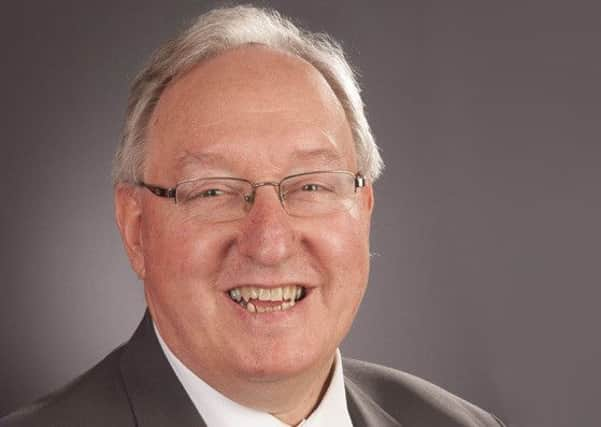'˜Residents will pay more, but receive less'


Since 2011, the county council’s budget has been cut by £148million. However, over the next four years, the council has to find another £58million to cut, leaving it with just £10.3million of core funding from the Government by 2020.
Speaking ahead of this year’s setting of the budget, council leader, Grant Davey, said: “This means that residents in Northumberland will be paying even more while receiving even less in services.”
Advertisement
Hide AdAdvertisement
Hide AdThis year, the Government has changed the way it calculates funding for councils. The settlement has hit rural councils the hardest with the Government reducing their settlement the most, while expecting the authorities to raise more money locally through council tax and business rates.
Northumberland will be more badly affected than most – facing a further 82.5 per cent cut in its core funding from Government by 2020 – above the national and North East Combined Authority average of 76.4 per cent and 79 per cent respectively.
Coun Davey, leader of the Labour group, also criticised the central government claim that the council is ‘only’ faced with a 2.5 per cent cut – much higher still than the England average of 0.5 per cent and the average among councils in the North East Combined Authority area of 1.8 per cent.
Coun Davey said: “The Government’s assertion and the spin being put out by local Tories that a cut is not a cut if they say it’s not and that we are receiving only a small cut in our funding is misleading. They have changed the way they calculate funding for councils and have automatically assumed we will implement a 16 per cent hike in council tax and assumed there will be more homes and businesses in the county to pay tax.
Advertisement
Hide AdAdvertisement
Hide Ad“They are ignoring the additional pressures all local authorities are facing, such as increased inflation and the impact of policies they have introduced, such as the national living wage, apprenticeship levy and pressures in other services too. While offering a de-minimus change on rises in council tax before holding a referendum for rural areas to ensure pressure is taken off HMRC and placed on rural councils.
“While they announced councils can introduce a new two per cent council tax per year for adult social care, this won’t even cover the increase in pay for adult social-care workers when the Government’s Living Wage comes in from April.
“The Government also announced some new funding such as the new improving better care fund and the new rural services delivery grant, but these have just been taken from the normal funding for local government – it’s not an increase, just recycling the same money.
“The Government’s aim for us to raise more money through increasing business rates might be good if you run a metropolitan council in the south of England, but here in a relatively remote and sparsely-populated county it’s much harder for us to attract new businesses.”
Advertisement
Hide AdAdvertisement
Hide Ad“We have already, and will continue to, use our reserves to help introduce the ongoing cuts; however, they are not a solution and can only be used once. Like most organisations, our reserves are already allocated to a number of projects, such as for schools. Once they have been used, they are gone – like savings in the bank – and we still have to find the savings the following years or reduce our spend.
“And while the council welcomes the recent news and support from Berwick MP Anne-Marie Trevelyan which means that the council will receive an additional £3.15million over the next two years, it does not change the overall financial position of the council.
“It’s another example of smoke and mirrors as the extra money is one-off funding and still means the council has to cut £58million from its budget over the next four years. As set out in the settlement from the Chancellor, it also means the council will still need to raise council tax for local residents by 16 per cent over the next four years.
“Despite all the cuts to date, we have worked hard to protect frontline services, whereas other local authorities have cut many services all together. We are looking to safeguard many libraries by moving them into leisure centres, reviewing our property and creating one-stop-shops of council services in market towns and selling off or leasing other buildings no longer needed.
Advertisement
Hide AdAdvertisement
Hide Ad“We have worked hard to ensure funding for subsidised transport is still provided, albeit with a reduced budget. We have also reduced our staff by a fifth (excluding schools). However, the bottom line is that the levels of ongoing cuts mean we are going to have to make more changes and consider cutting some services.”
The council’s budget for the next two years and its medium-term financial plan will be discussed at the council’s economic growth and corporate services overview and scrutiny committee next Tuesday, then at the cabinet meeting on Monday, February 22, and at a meeting of the full council on Wednesday, February 24.